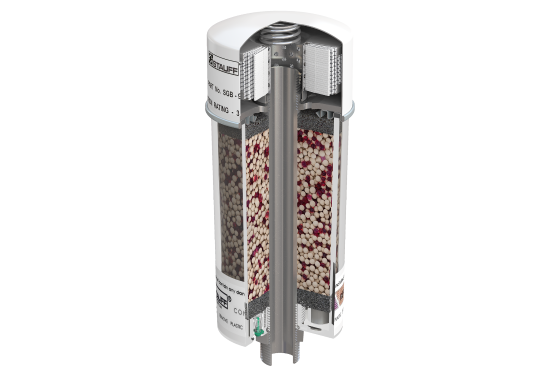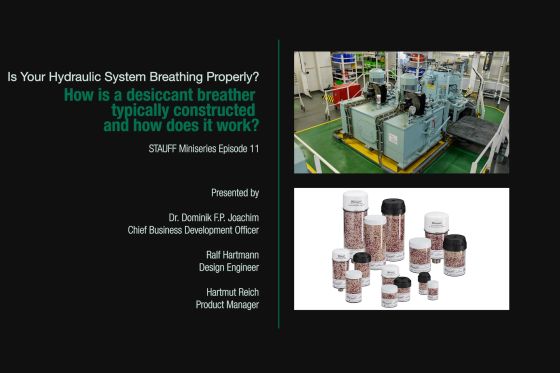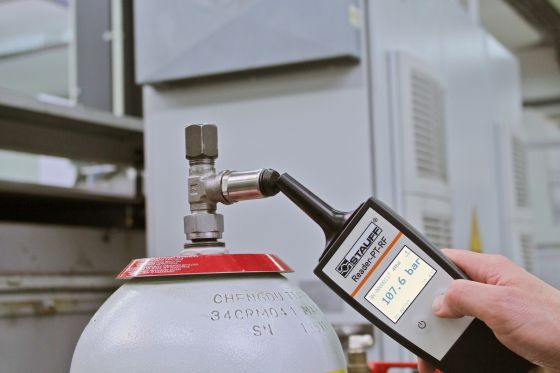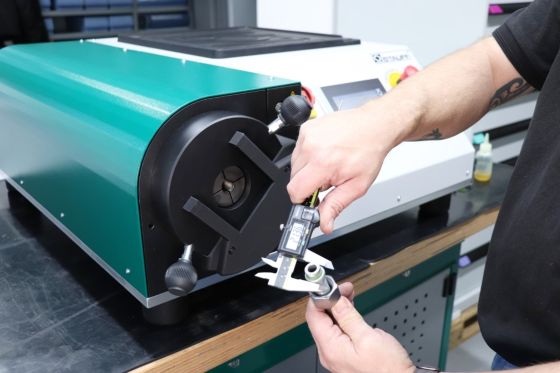What is the typical design of a desiccant breather and how does it work?
Episode 11 of the STAUFF Miniseries "Is Your Hydraulic System Breathing Properly?"
There are different requirements for desiccant breathers, depending on the area of application. STAUFF has developed three different series for this: one for use in challenging conditions, one multi-purpose series with many adaptation options and one “simple” version All products have one thing in common: They are assemblies that contain the filter elements and drying materials in order to clean and dry the air entering the hydraulic reservoir. Their design is shown in the video:
Did you know: You can turn on subtitles by clicking the CC button at the bottom of the video.
Watch this and all other episodes of this STAUFF Minseries on Youtube instead.
What are the components of a desiccant breather?
In mobile working machines, they have to be particularly robust and vibration-resistant. While things are a bit calmer in stationary systems, there might be less space available, so that the protection for the hydraulic reservoir cannot take up too much room. In other cases, it might be crucial that a particularly cost-effective desiccant breather can be easily replaced by untrained personnel in a few simple steps. For these different requirements, the STAUFF hydraulic accessories offer three series, each in turn with many variants and specifications.
Each desiccant breather is an assembly that contains filter elements and drying materials for filtering out dirt particles and binding the moisture in the air. The principle: An initial filter layer separates out the solid particles. The “roughly” pre-cleaned air flows through a capsule with desiccant before it is then “fine” filtered and lowered into the hydraulic reservoir.
The “flagship” in the STAUFF range: the SDB series
The key feature of this particularly robust and sturdy SDB series is a central stainless steel tube. It is positioned in the centre of the assembly and allows the breather to be used even in the most adverse conditions, for example with strong vibrations. This central tube is surrounded by a transparent housing made of UV-resistant polycarbonate. This contains the desiccant, embedded in two foam filter discs: It consists of 25 % silica gel and 75 % molecular sieve. In the SDB series, these filter discs are supplemented with a spin-on filter head with a star-fold glass fibre element.
The stainless steel tube not only absorbs vibrations or impact from stones, etc. It is also embedded at the centre of the assembly in such a way that no desiccant could get into the hydraulic reservoir even if the housing was damaged.
Where can such extreme conditions be expected? In large stone crushing systems, in the mining industry or other areas of mobile hydraulics where large gearboxes and engines generate strong vibrations. But the SDB series is also used where maintenance intervals have to be reduced significantly, for example in wind turbines: The “flagship” in the STAUFF range can be equipped with check valves to maximise the service life of the desiccant.


Do you already use desiccant breathers in hydraulic systems?
Then share your experiences and leave a comment below this post.

Newsletter Subscription
Receive automatic e-mail notifications about new posts on the STAUFF Blog






